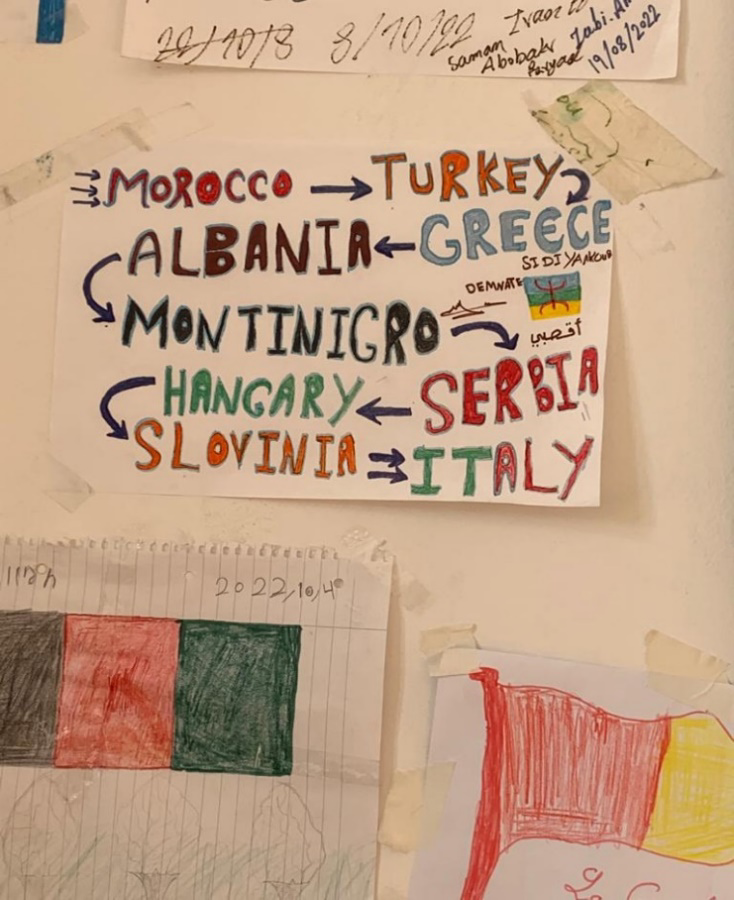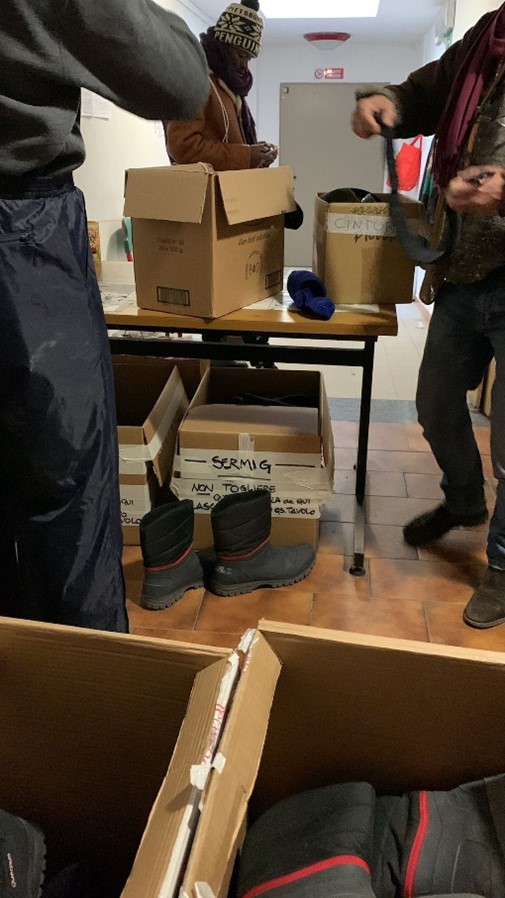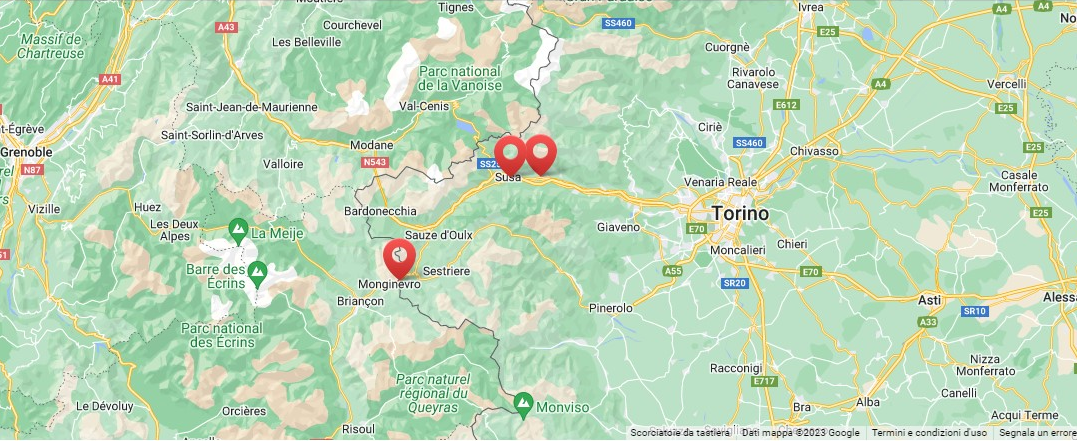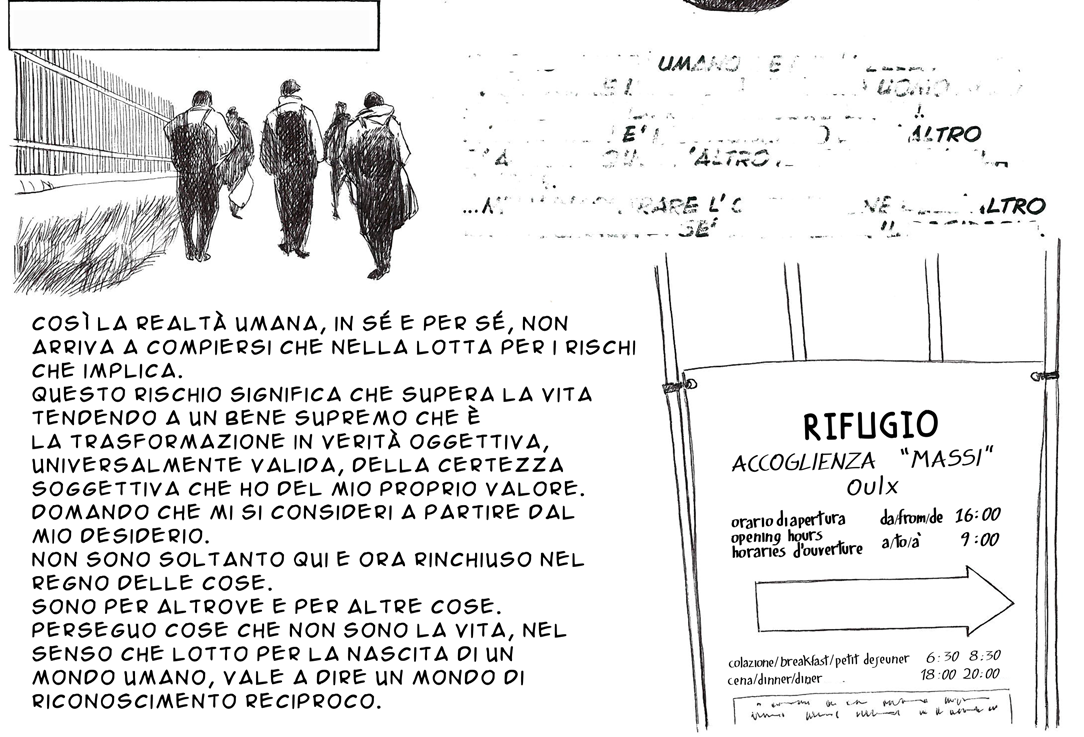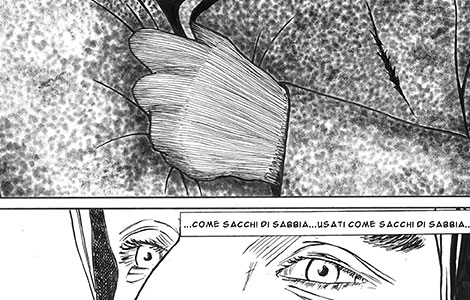Node 01 - Experimental
Ended
February - June 2023
Countries: Italy
Nodes: Oulx
Rifugio Fraternità Massi
One of the first nodes of the SolRoutes project is the Alpine route affecting the Susa Valley in what has recently become a highly debated border zone.
- One of the first nodes the SolRoutes project takes into consideration is the Alpine route affecting the Susa Valley in what has recently become a highly debated border zone. More specifically, the ethnographic fieldwork took place between February and June 2023 at the Rifugio Fraternità Massi, a solidarity actor located in Oulx providing hospitality and assistance to people on the move.
This specific geographical context bears relevance on several levels. Since 2017, a significant number of international migrants have entered this territory attempting to cross the border and reach other European countries. According to estimates provided by Medici per i Diritti Umani – Doctors for Human Rights, about 15,000 people have crossed the French–Italian border via this route since 2017. Up until 2019, it was predominantly migrants from sub-Saharan countries who chose this border node to cross; however, following the so-called 2015 ‘long summer of migration’ and as a result of the control intensification in the southern and coastal stretch of the same border, we have witnessed the arrival of people predominantly from the Balkan route.
Against the background of the new salience of political borders in social research, scholars in critical border studies have focused in many contexts on stressing the strategic use of the natural environment in the process of discouraging and disrupting ‘unauthorized’ migrant journeys. Indeed, it is widely recognized by the migration scholarship that natural elements such as rivers, mountains, deserts and seas are not mere background frames, but can be mobilized and become ‘weaponized’ as a tool of the border machine to implement border policies. Within this framework, the natural environment can assume a hostile character actively shaped by the border management; indeed, the Italian-French border can be understood as an example of necropolitical politics implemented by both Italian and French authorities in an attempt to discourage its crossing.
These spaces where unauthorized movement takes place now house specific camps and relocation centres, hotspots, hubs, checkpoints, and digital platforms. To provide emergency assistance to those who were turned back by the French authorities while crossing the border, various forms of active reception have sprung up on the Italian side. In March 2018, after the police aux frontières delivered a group of rejected people in the middle of the road, several initiatives of the network of trans-European alliances, described by Queirolo Palmas and Rahola as part of the ‘underground rail-road’, flourished further downstream, among which there is Rifugio Fraternità Massi.
Established in 2018, it delivers a variety of services to people on the move, from providing meals to overnight shelter to legal and medical assistance. The shelter can be understood as an actor of non ‘politicized humanitarianism solidarity’ or ‘enabling humanitarianism’ where acts of radical solidarity intertwine with more patronizing dynamics. Supported by the municipal administration, it has been transformed into a legitimate and institutional transit space. Yet, even if short and fragmented, the fieldwork allowed us to observe the constitution of grey zones inhabited by a plurality of different subjectivities where sporadic but persistent moments of transgression take place due to the involvement of the solidarity actors. Within this frame, they can be interpreted as political acts of solidarity and resistance. The daily support activities, together with the sharing of information and resources between both sides of the mountains, can be described as a ‘mobile infrastructure of solidarity’ that supports people on the move to negotiate their passage, gain autonomy and decrease the power of local smuggler networks.
Node 1 Generative Narrative Workshops: La Giacca – The Jacket, Graphic Novel
Researchers
L. Körükmez, R. GhaffariRelated Outputs
Graphic Novel
Article
Telling the migrants' game in the mountains

Authors: R. Beneduce, L. Giliberti, P. Gorza, S. Greco, L. Q. Palmas, G. Seimandi, S. Spensieri
Published in: “Animazione sociale”, 05, Torino 2023, pp.68-96.
